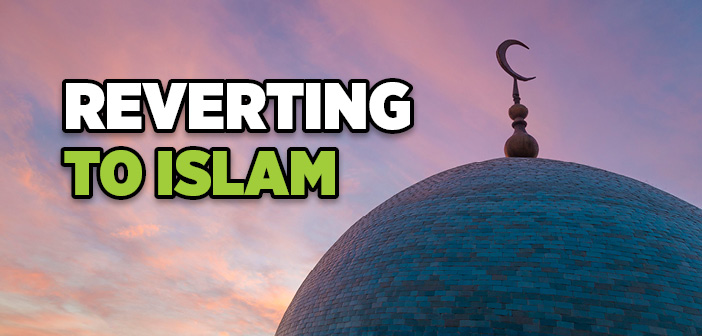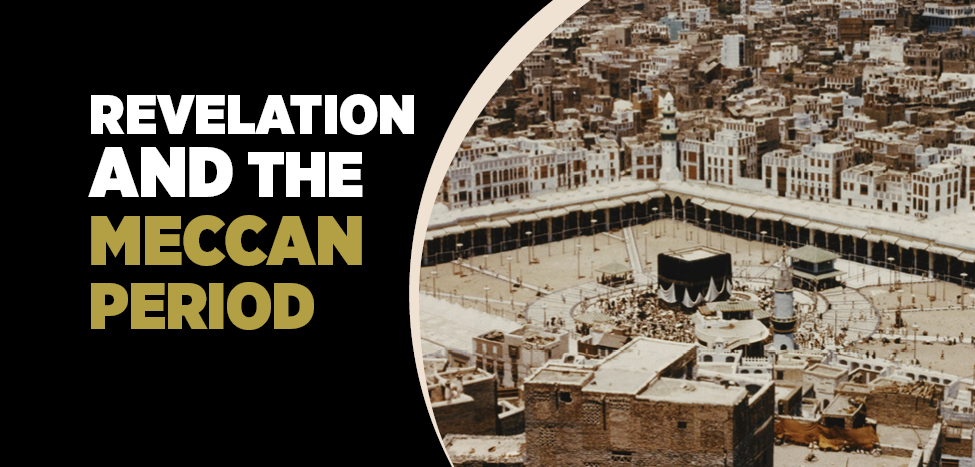How was meccan period?
The Prophet Muhammad was chosen as a Messenger by God when he was forty years of age. It is reported that Muhammad did not agree with his society’s beliefs in idols and or their social actions. A few years prior to his Prophethood, in the month of Ramadan, he had begun to retreat to the secluded cave of Mount Hira. Aisha, who most probably heard this from the Prophet, reported the following, “The commencement of the Divine revelation to God’s Messenger was in the form of good dreams, which came true like bright daylight, and then the love of seclusion was bestowed upon him. He used to go into seclusion in the cave of Hira where he used to worship (God alone), continuously for many days before his desire to see his family brought him back. He used to take with him prepared food for the journey and for his stay, and then come back to (his wife) Khadija to take his food likewise again, till suddenly the Truth descended upon him while he was in the cave of Hira. The angel came to him and asked him to read. The Prophet replied, ‘I do not know how to read.’ The Prophet added, ‘The angel caught me (forcefully) and pressed me so hard that I could not bear it any more. He then released me and again asked me to read and I replied, ‘I do not know how to read.’ Thereupon he caught me again and pressed me a second time till I could not bear it any more. He then released me and again asked me to read but again I replied, ‘I do not know how to read (or what shall I read)?’ Thereupon he caught me for the third time and pressed me, and then released me and said, ‘Read in the name of your Lord, who has created (all that exists), created man from a clot. Read! And your Lord is the Most Generous.’[1] It was in that cave in 610 CE that Prophet Muhammad received from Allah, may He be glorified and exalted, the first verses of the Qur’an. Then and there, history changed. The main message that Muhammad was to convey to his people was that there was only One God and that Muhammad was the last Prophet of God. The Qur’an continued to be revealed in fragments to the Prophet Muhammad over the following twenty three years. During these twenty three years of the Prophet receiving revelation, the Qur’an was the most important agenda for the Muslims; it was part and parcel of their daily lives. The last words of the Book were revealed to the Prophet shortly before his death in 632 CE.
The Prophet Muhammad was commanded to invite those close to him to the religion of Islam. This invitation continued in secret for approximately three years. The public invitation to Islam started in Mecca after the fourth year of Prophethood. The Prophet began this difficult task by first addressing the tribe of Quraysh. However, very few of the inhabitants of Mecca paid any heed to his words and slowly the leading elite started to persecute anybody who accepted Muhammad’s message. The Quraysh began to humiliate and insult Prophet Muhammad due to his criticism of their beliefs and attitudes; they increased in their enmity towards him when they saw that he was gaining support. After a certain time they did not refrain from resorting to violence. The Prophet was subjected to harassment and abuse. However, armed with patience, resilience, determination and the protection of his uncle Abu Talib and the clan of Hashim, the Prophet was able to carry on preaching the new faith to people. However, the people that accepted Islam, many of whom were slaves and the poor, had to suffer all kinds of persecution, including brutal torture and murder. Finally, in 614 CE, the Prophet instructed a group of Muslims to escape the persecution by going to Abyssinia and seeking the protection of its just Christian king. The Quraysh then sent a delegation to the king, carrying precious gifts, to secure the extradition of the Muslim refugees. However, the king rejected the bribe and let the Muslims stay in Abyssinia. One year later, the Quraysh imposed economic and social sanctions on the Prophet, his followers and his clan. As a result, the Muslims began to live in a sanctioned off place near a mountain in Mecca. These sanctions lasted approximately three years before they came to an end. Soon after the decision to cease the sanctions due to support of the Hasimite clan, the Prophet lost his beloved wife Khadija and his uncle. The loss of his uncle’s protection resulted in the further persecution of the Prophet Muhammad and his followers at the hands of the disbelievers; their relentless attempts to uproot Islam and destroy its adherents increased tenfold.
From the first years of his Prophethood, the Prophet Muhammad had demonstrated great efforts to convey the message of Islam to those who came to Mecca for pilgrimage, as well as, those who visited the city’s fairs for trade. The most fruitful of these contacts were those he made with the people of Yathrib. In 622 CE, during the season of pilgrimage at Mecca, Muhammad met with a number of leaders from the city of Yathrib, where he had previously sent some Muslims to settle. These leaders made a pledge to protect the Prophet against the Quraysh and invited him to live in Yathrib. The Prophet then began to instruct Muslims to immigrate, individually, or in small groups, to Yathrib. The Quraysh tried to prevent Muslims from fleeing Mecca but most Muslims succeeded to migrate, and finally, Muhammad himself decided to immigrate. The various clans of the tribe of Quraysh agreed to act as one and assassinate the Prophet before he left Mecca. The thought behind acting collectively was so that no one party could be blamed for the killing of the Prophet and hence, become embroiled in a war of vengeance with the clan of Hashim. However, the assassination plan was sabotaged by divine intervention. The night the murder was planned to take place, Allah, may He be glorified and exalted, informed His Prophet of the danger and ordered him to secretly leave Mecca and head to the city of Yathrib (which had become known as Medina by then). This famous event, known as the ‘Hijrah’ (immigration), had far-reaching consequences with regards to establishing the Muslim community, strengthening the position of Islam and spreading its message. The new Muslim should also be aware of the fact that this event marks the beginning of the Islamic calendar known as the ‘Hijri’ calendar.
[1]. Q. 96:1-5.
Source: Islam For New Muslims An Educational Guide,Assoc. Prof. Amjad M. Hussain, Erkam Publications





